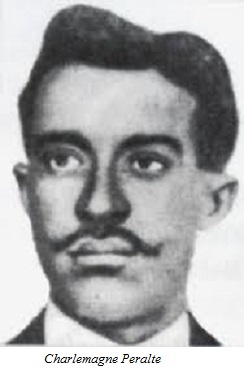CSMS Magazine
When I was a child, I was always told that patriotism was something one carried to the deepest end of his heart. Frankly, I was always dubious about this understanding. At one point, I nearly confused patriotism with blind submission toward a country’s state bureaucracy. Then, I lived in a tightly controlled society that allowed no voices of dissent, where those who dared to express their feeling of opposition faced certain death. I have to say that, growing up, I knew nothing about political repression because in my surroundings, there was an unspoken consensus over the issue of freedom of speech, the pursuit of happiness, and other forms of human rights.
People walked with muted lips, and they took their blows with repressed emotions. “Don’t say what you wanna say. Tell them what they wanna hear.” That was the creed, and young and old learned to abide by it with a meticulous assertiveness. Those who controlled the state bureaucracy called it ‘the patriotic duty,” but to their subjects, it was pure survival instinct. Of course, it didn’t matter. As long as they had the power of life and death over their citizens, and their power remained unchallenged, they couldn’t care less about what people hid deep inside their feared and crippled minds.
I spent my early teens during the Duvalier dynasty in Haiti, where I was born. I didn’t know about the horror of the brutal regime until I was living outside of the country. In Haiti, I lived in a small, quiet town where everybody knew your name, and children do what they always do: mingling with friends and close relatives. Consequently, I was totally ignorant about the hellish conditions of those who lived under a repressive regime.
Papa Doc was indeed a modern-day tyrant. From 1960 to 1970, he had succeeded in suppressing every voice of opposition to his sadistic regime. Early on, he had reshuffled the military hierarchy, forcing into exile those he could not eliminate outright, killing thousands who wanted to take a stand against the growing ascendance of Creole fascism, handpicking a myriad of boogeymen entirely beholden to his persona and placing them at the top echelon of the country’s military. That was not all. To make sure he had all security forces under his complete grip, he created a militia infamously called The Tonton Macoutes to keep at bay or in check any zealous fraction from the military that might have wanted to slip out of his control. Then, the whole country went into a silent mode.
In 1964, convinced that he had successfully completed the zombification process, he amended Haiti’s constitution and declared himself president-for-life. Thus, Haiti became his own property. There was no difference between State’s enterprises and the Duvaliers’ family businesses. Those who served under his dictates had gotten really rich, pillaging the country’s meager resources while sending millions of Haitians to wallow in poverty forever. In 1971, a dying François Papa Doc Duvalier faced no challenge in handpicking his son Jean Claude to succeed him, thereby ensuring the continuity of the dynasty.
The Duvaliers are now gone, but the insurmountable problems, which they had created, linger. To make matters worse, the country’s current president has embarked upon a public relation scheme to rehabilitate Baby Duvalier who has returned from exile. Why? Don’t ask me, ask him.
With all the hurdles Haiti needs to overcome, many of its expatriates wonder if it will ever land on its feet again. But I’m not one of them. I still believe Haiti will be a respected country again. Other countries were in worse shape than we are, and yet they had managed to reorganize themselves through the building of viable institutions and the introduction of democratic governance. This brings us back to an important document published by PEP (Parti d’Entente Popular) or Popular Consensus Party in the early 1960s under the guidance of Jacques Stéphen Alexis. This document is titled Programme pour la Nouvelle Indépendance or Program for a Second Independence. This document may be used as a blueprint for political discussions around the issue of rescuing Haiti from the grip of its enemies.
Haitians love their country, and their patriotism has long been used as wholesale merchandise in cheap labor markets. To put it plainly, Haitians’ love and passion for their country have long been taking for granted. It is time to reconsider. How long will we remain idle while others—the sons of Conzé—continue to rule our lives? Remaining passive won’t change a thing. It will make matters worse. It’s time to wake up. Ase plere an’nou lite (Stop the whining, let’s get to work).
Note: Conzé was the Haitian who betrayed Charlemagne Péralte, leader of the resistance movement against American military occupation in Haiti (1915-1934). Péralte was executed, but the memory of his bravery remains an important part of Haiti’s modern history.
Dr. Ardain Isma is essayist and novelist. He teaches Cross-cultural studies at University of North Florida. He is the chief editor for CSMS Magazine. He may be reached at publisher@csmsmagazine.org


